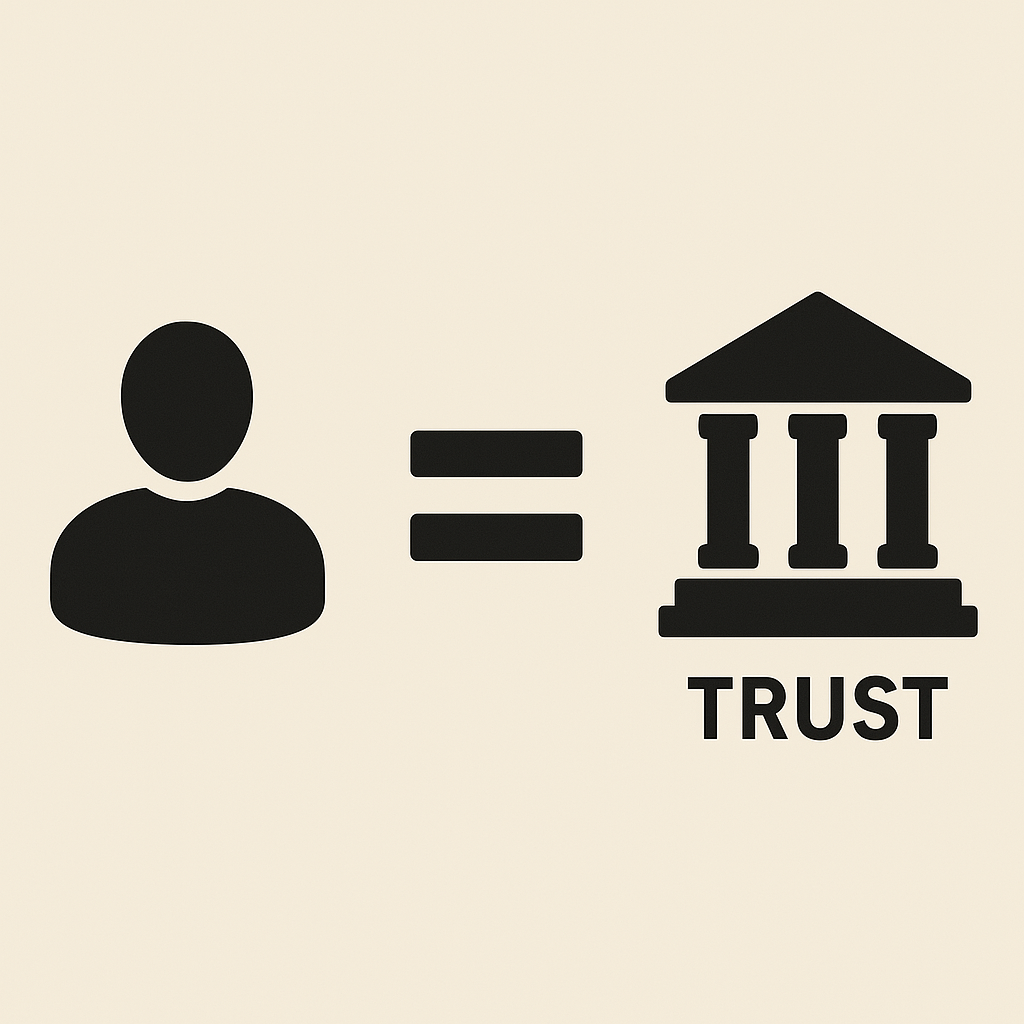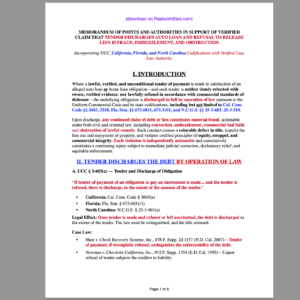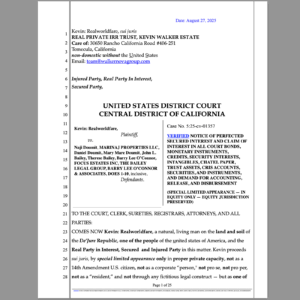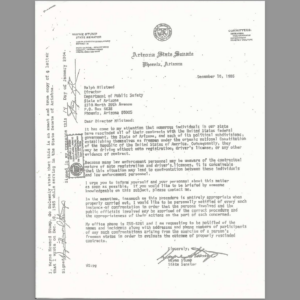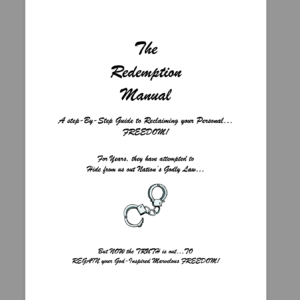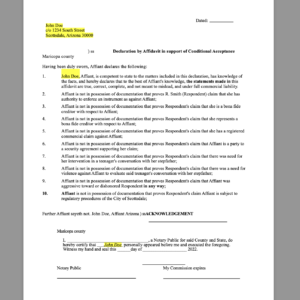In the American legal system, one of the most misunderstood terms is the word “person.” While in everyday conversation “person” refers to a living man or woman, in statutory law, administrative codes, and commercial regulation, a “person” often refers to a legal fiction—a trust, estate, corporation, or other entity created by law and recognized only on paper.
Understanding this distinction is essential if you wish to reclaim your rights, rebut presumptions of jurisdiction, or correct the record about your legal and commercial standing.
🔹 What Is a “Person” in U.S. Code?
According to federal statutes, particularly the Internal Revenue Code:
26 U.S.C. § 7701(a)(1):
“The term ‘person’ shall be construed to mean and include an individual, a trust, estate, partnership, association, company or corporation.”
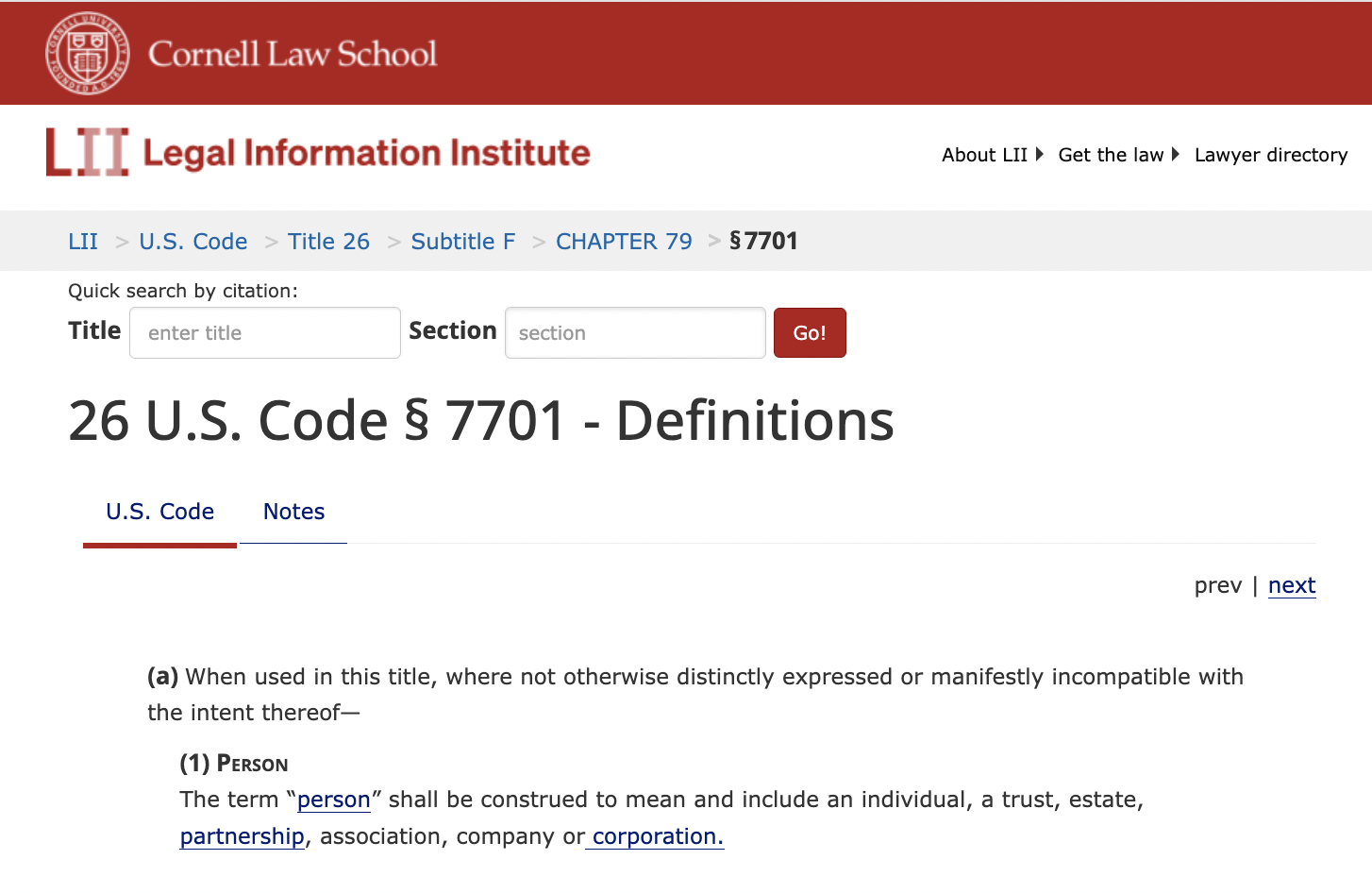
Here, “individual” is listed alongside entities that are clearly not living people—like trusts and corporations. In other words, under U.S. Code, the term “person” is deliberately broad and artificial, meant to include legal actors, not just natural men and women.
🔹 What Does Black’s Law Dictionary Say?
Black’s Law Dictionary, used by judges, attorneys, and legal scholars, has long defined “person” as both natural and artificial:
Person (Black’s Law Dictionary, 6th–11th eds.):
“A human being (natural person), or an entity (such as a corporation) that is recognized by law as having the rights and duties of a human being.”
Artificial Person:
“A legal entity, not a human being, created by law and given certain legal rights and duties.”
Trust:
“A legal or fiduciary relationship in which one party holds title to property for the benefit of another. A trust is treated as a person under law.”
In legal terms, the all-caps name on your birth certificate, driver’s license, or court summons is not you—it is a corporate version of you, a legal person created for regulatory purposes.
🔹 Case Law Confirms the Distinction
This concept has been tested and confirmed in the courts:
Hale v. Henkel, 201 U.S. 43 (1906):
“The individual may stand upon his constitutional rights… but the corporation is a creature of the state.”
This means that while a living individual possesses unalienable rights, a corporation or trust (a “person” in law) is subject to the privileges, restrictions, and controls of the state.
🔹 Why This Matters: Jurisdiction, Rights & Contracts
Understanding this difference is not just academic—it determines how the system sees you, and whether your rights or privileges apply.
| Living Man/Woman | Legal Person (Trust/Corp) |
|---|---|
| Holds inalienable rights | Holds state-granted privileges |
| Exists by nature | Created by statute or contract |
| Protected by Constitution | Subject to administrative law |
| Cannot be compelled by statute | Must comply with statutes by presumption |
This is why contracts, applications, and court appearances often presume you are a person—and thus within jurisdiction—unless you rebut that presumption with lawful declarations, affidavits, or a claim of status.
🔹 The All-Caps Name: A Legal Entity or Trust
The name in ALL CAPITAL LETTERS on your official documents typically refers to a U.S. citizen franchise, corporate fiction, or ens legis—a legal person/trust that operates in commerce and is subject to codes.
You, as a man or woman, are considered the beneficiary, trustee, or executor of that legal fiction—but if you do not assert that position, the court presumes you are the debtor or defendant, bound by statutory jurisdiction.
🔹 How to Reclaim Standing
If you do not wish to be treated as a corporate legal fiction (person), you must:
-
Declare your status as a man/woman, American National, or private individual
-
Rebut presumptions that you are a “person” as defined in U.S. Code
-
Reserve your rights using U.C.C. § 1-308
-
Operate your affairs under trust law, common law, or private contract law—not by adhesion or presumption
🔹 Final Thoughts
The legal term “person” is one of the most quietly deceptive tools in American statutory construction. While it sounds harmless, it is routinely used to convert living men and women into regulated entities under commercial jurisdiction.
By understanding that a “person” includes trusts, corporations, and estates, you can begin to differentiate your private capacity from the legal fiction, and lawfully assert your constitutional standing when needed.
🛡️ Remember:
A man is not a person. A trust is a person. A corporation is a person. But you, unless you consent, are not.
